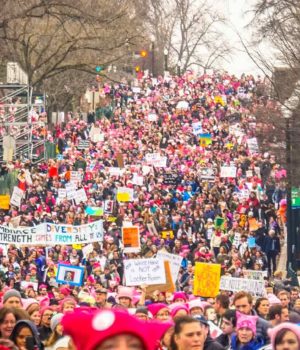Written by Joey Slusher
This past November’s election was defined by a few unexpected states. The Senate and the Presidency were delivered in large part due to the work of activists and organizers in black communities across the country. In no place was this truer than in the state of Georgia.
Georgia was an unexpected win for the Democrats. Many believed it was essentially a foregone conclusion that the long-time solid red state would easily be handed to President Trump and the Republican Senate candidates. Obviously, this was not the case for folks like Stacey Abrams and several community organizations, including prominent black churches, who organized voter registration events, delivered voters to the polls, and handed out water and food to folks who waited hours to vote.
It is clear that these efforts were integral to winning the election and delivering to the democrats a 50 seat majority in the senate which was clinched by two democrats winning in Georgia. This fact has not been lost on either side, and post-election we now see a number of Republican-led state legislatures attempting to limit the effect of the aforementioned initiatives.
Most prominently, the Georgia Republicans plan to pass a bill that would limit “No Excuse” absentee ballots. This would require Georgians to meet certain standards in order to be given an absentee ballot and not have to go to the polls. There is also a bill under consideration making it illegal to hand out water to people waiting in line at the polls and another which would limit the hours a polling station can be open on Sundays. The Sunday move would hurt older black voters in particular, as many of them were delivered by organizers directly from church, which would leave less time for people to be able to vote.
State Republican leaders justify these moves by stating that they will re-establish trust in their elections. This is a reference to President Trump’s unproven claims about election fraud. Georgia has been at the heart of these unfounded claims despite Georgia’s Republican Secretary of State insisting that there was no evidence of widespread intentional voter fraud. In fact, he stated that prior voter restrictions that cleared thousands of people from voter rolls in Georgia also wiped a number of voters from President Trump’s base from those rolls and only hurt the President’s chances in the state.
In response to this, several voter rights organizations are building challenges to these new laws popping up around the country. President Biden has responded with an executive order that expanded voter rights and has directed all executive agencies to look into how they can help voters by making fairer elections. There are also movements among Democrats in Congress to pass legislation to overrule state legislation and protect voters, because it is clear that they could not maintain either house without every voter coming out for the Midterms in 2022 and the Presidential election in 2024.
This fight will likely continue for the next few months and years as both sides attempt to protect their interests and try to ensure a victory as best they can.




